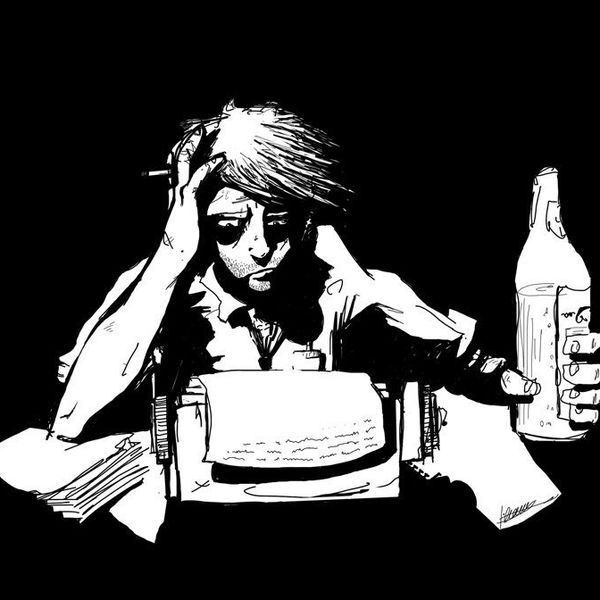3:37 a.m. I wake with a start and the room is still dark. I don’t bother reaching for the lamp. Instead I fumble around for my cell phone before I forget. Forget the dream I was having. I open my phone’s notes app and frantically type away in semi-coherent sentences, adding the dream to the long list of story ideas. Satisfied, I fall back asleep, making a mental note to review the idea in the morning.
That’s where I get my inspiration and ideas for my fiction writing: dreams. They may be a little more far-fetched than most fiction writing, but they’re original, my own brainchild. With this method of thinking up ideas for writing, my subconscious, I have no want for inspiration. But that doesn’t mean I have several dozen completed novels stored on my hard drive.
Not everyone is a writer, much to the chagrin of most high school English teachers. Technically, yes, everyone is a writer in the sense that they can put thoughts into physical form through the written word. But that doesn’t mean everyone can use those same words, those same 26 measly letters, to invoke emotion and thought, to make someone cry at the proverbial drop of a hat, or rise in excitement when the carefully and subtly placed foreshadowed puzzle pieces fall perfectly in an epic climax.
It takes more than some flowery words, or lack thereof if you write like my brother or George R. R. Martin, to be a writer. The average number of words in a novel is 64,000. Most people have trouble coming up with 1,000 words strung together in a short narrative; this article will take a few hours and have maybe 600 words (actually 776, good for me). So in order to actually put forth that many words, a writer has to have incredible self-control to actually sit down in front of a word document (or typewriter, those hipsters) and actually write. A writer also has to have a good sense of time management, as when there is a deadline set by an editor, the writer has to have a manuscript ready by that deadline. And on top of all of that, a writer has to have motivation, the drive to actually see a project through to the end without abandoning it half way though.
I suffer from chronic writer's block. But that statement almost seems like a contradiction as I just said that I have plenty of inspiration from my subconscious. Well if it seems like a contradiction to you, then your idea of writer's block is incorrect. Most people view writer's block as ideas just not happening, as if the water tap has been plugged with a cork. While in reality it is any self inhibitor that makes the words stop, that makes that little line on Microsoft Word blink incessantly. Maybe the most common form is the lack of ideas while still having the cloying need to write anything! However a form that I am all too familiar with, at least when it comes to fiction writing, is a motivation to write. I stare at the paper, the relatively fleshed out bones of a plot in my head, and nothing comes out. A few strangled sentences make there way though the corked water tap before being immediately deleted in anger. I lack the motivation to force the words out, and the self control to keep writing through the block.
At the end of the day, practice makes perfect when it comes to any craft. The more you write, the better you’ll be at the art of the word. The more you force yourself to sit down and write, the easier it will become to put all those words down at one time. The more you schedule and plan, the more carefree you will be when you do sit down to write, and you won't have to worry about a deadline. And the more you care about what you’re saying, the less you’ll drag your heels when it comes to writing. So write on, writers, old and new. Write through the block and don't be tempted to immediately delete everything, everything looks better when looked through a different lens on a different day.





















